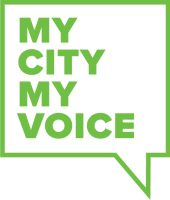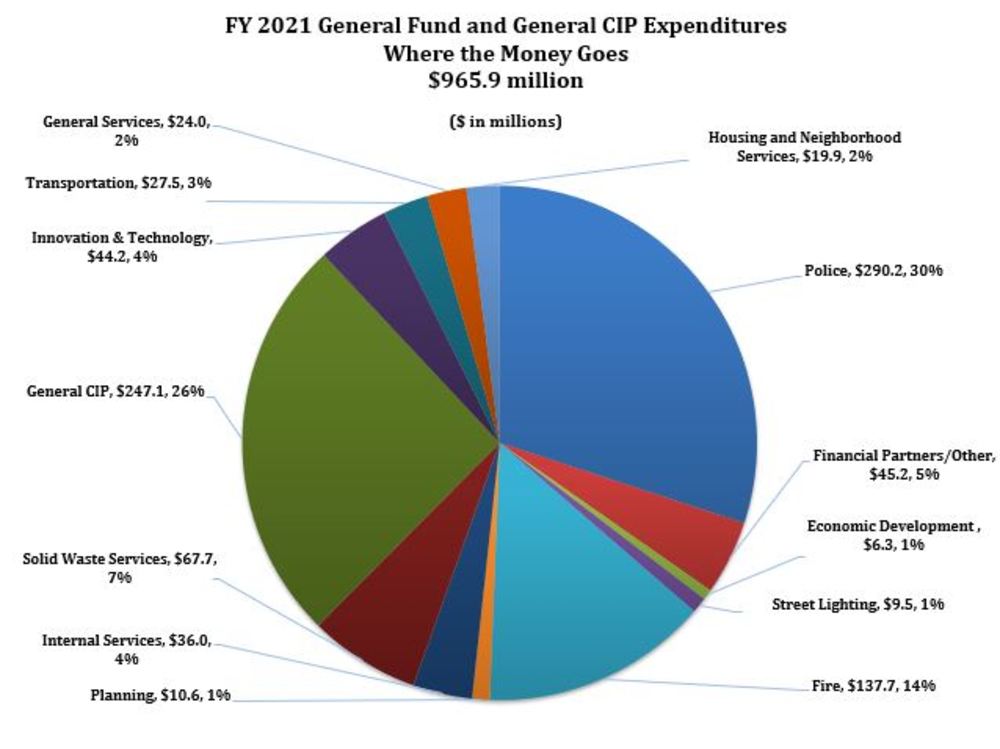City of Charlotte Annual Budget Community Input Survey
City of Charlotte Annual Budget Community Input Survey
INTRODUCTION
The City of Charlotte seeks your input as part of the annual budget development process. Charlotte City Council sets the priorities for using city dollars. This fiscal year, Charlotte City Council and the city manager face unique budgetary challenges due to the current economic conditions resulting from COVID-19. Your input will help develop a budget that is responsive to the community's needs and preferences.
INSTRUCTIONS
This survey is comprised of two parts. Part one looks at the city's Fiscal Year (FY) 2021 General Fund and General Capital Investment Plan (CIP), and part two requests input on initiatives aligning with the city's current Strategic Priorities. The survey should take approximately 10 to 15 minutes to complete.
Please visit the official City of Charlotte website (www.charlottenc.gov) to learn more about your city government.
The City of Charlotte appreciates your feedback!
Please note the City of Charlotte Budget does not include funding for Mecklenburg County services such as Public Schools, Public Health, Social Services, or County Parks and Recreation.
CITY OF CHARLOTTE FY 2022 BUDGET SURVEY
PART ONE: THE CITY'S GENERAL FUND AND GENERAL CAPITAL INVESTMENT PLAN BUDGETS
The city's General Fund is a central fund that is the principal financial support for such basic municipal services as the police and fire departments, housing and neighborhood services, and general government operations (e.g., mayor and city council, solid waste, economic development, finance, and other internal services). The General CIP supports the construction of affordable housing, roads, intersections, sidewalks, bike lanes, city facilities, and economic development initiatives.
The Adopted FY 2021 Budget and FY 2021 - 2025 CIP total approximately $2.55 billion (net of transfers). Of that adopted budget, the FY 2021 General Fund and General CIP budgets equal $965.9 million.
Where does the money come from?
General Fund and General CIP funding sources include property and sales taxes, licenses and fees, utility franchise sales tax, intergovernmental transfers, voter-approved bonds, asset-supported debt, Pay-As-You-Go cash, and other revenue.
How are these funds allocated?
As seen in the chart below, various city departments make up the general fund. The services provided by these departments include public safety services, solid waste services, housing and neighborhood services, along with many others.
FY 2021 General Fund and General CIP Expenditures
Total: $965.9 million ($ in millions)
General Services, $24.0, 2%| Housing and Neighborhood Services, $19.9, 2% | Police, $290.2, 30% | Financial Partners/Other, $45.2, 5% |Economic Development, $6.3, 1% |Street Lighting, $9.5, 1%
Fire, $137.7, 14% |Planning, $10.6, 1% | Internal Services, $36.0, 4% | Solid Waste Services, $67.7, 7% | General CIP, $247.1, 26% |Innovation and Technology, $44.2, 4% | Transportation, $27.5, 3%
PART TWO: THE CITY'S STRATEGIC PRIORITIES
While COVID-19 is necessitating a shift in operations to deal with the most immediate needs, the City of Charlotte has five strategic priorities that serve to guide the city's recovery and progress forward.
The strategic priorities defined by Council will guide decision making and align resource allocation:
- Economic Development (Economy, Jobs, Upward Mobility)
- Great Neighborhoods (Affordable and Sustainable Neighborhoods)
- Safe Communities (Safe, Healthy, and Inclusive Communities)
- Transportation, Planning, and Environment (Accessibility, Mobility, and Connectivity)
- Well-Managed Government (Efficient, Effective, Accountable, Responsive, Inclusive, and Customer Focused)
The development of the Proposed FY 2022 Budget will be guided by the above strategic priorities with funding directed towards programs and services that support these priorities.
This section of the survey allows you to indicate what initiatives within the city's strategic priorities matter most to you.

